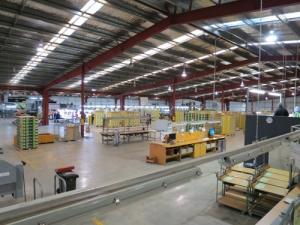The horticulture industry has an obligation to involve New Zealanders because they are the seedbed for workers for the industry, Jerf van Beek told a HortNZ conference session.
HortNZ was told by government agencies that the industry could employ seasonal workers from the Pacific and Asia, but had to involve NZers also.
At roadshows growers did not want to consider NZers because they presented a “broken picture. The growers have had very poor experiences with them. “But we owe it to our industry and communities to try.”
Van Beek says some of the social issues of Hawkes Bay and other horticulture regions is related to the seasonality of the labour.
“If we can attract NZers – attract them for longer, if we spend time with them and have our education providers assist, then we can attract and develop them.”
He says politically it is very difficult for the Government to allow large numbers of migrants to enter NZ, hence it wants industry to measure what it is doing in this areas.
Van Beek says the industry is unique in the migrant seasonal workers it is allowed to bring in.
“Politically it is very difficult for governments to bring people through the border while you have unemployed people sitting in the regions or even in the bigger cities.”
Under the NZ RSE scheme they are trying to bring people in from areas of high unemployment. “The scheme has been very successful in Bay of Plenty, but in Hawkes
Bay not so much. It is much more difficult to pick an apple than a kiwifruit.
“Packhouses are very short of staff and it has proved better to put NZers into packhouses than the fields. We will find out over the next two or three seasons how we can go forward with the scheme. I believe it is here to stay and we need to make it work,” van Beek adds.











